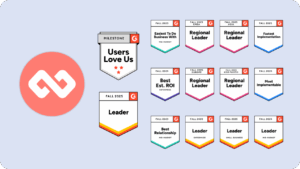Mentoring has long been recognized as a valuable resource for personal and professional growth. But have you ever heard of flash mentoring? If not, you’re in for a treat! In this article, we’ll dive into the world of flash mentoring and explore its benefits, strategies for setting it up, and tips for getting the most out of your flash mentoring sessions.
What is Flash Mentoring?
Flash mentoring is a brief and focused mentoring relationship that offers on-demand support and guidance. It’s like getting a quick jolt of inspiration and knowledge from someone who’s been there and done that. Unlike traditional mentoring, which often involves a long-term commitment, flash mentoring is designed to provide immediate assistance and address specific needs and challenges.
It’s aimed at providing the mentee with direct guidance, advice and resources that are relevant to their query. Generally speaking, a flash mentor will be an experienced professional with deep knowledge of the specific field or industry of the mentee – a perfect addition to an individuals’s personal advisory board.
The purpose of flash mentoring is to provide very specific support during times when it is needed the most. It’s great for:
- The Workplace: Especially when it comes to career transitions, promotions, and department transfers.
- NFPs and Charities: It can provide support for very specific needs and/or groups of people.
What’s the Difference Between Traditional and Flash Mentoring?
The main difference between traditional mentoring and flash mentoring is the duration and intensity of the mentoring relationship.
Traditional mentoring typically involves a more long-term, ongoing relationship between a mentor and mentee. In this relationship, you would meet regularly over a period of months or even years, with the goal of building a strong, supportive relationship that helps the mentee grow and develop over time. Traditional mentoring is often more comprehensive and can cover a wide range of topics related to the mentee’s personal and professional development.
Flash mentoring, on the other hand, is a brief, focused mentoring relationship that typically lasts for a short period of time, such as a series of meetings over a few weeks. The focus of flash mentoring is on providing targeted guidance and support to the mentee in a specific area of interest or need. Flash mentoring is often more intensive and covers a narrower range of topics than traditional mentoring.
The Difference Between Flash Mentoring and Just-In-Time Mentoring
Flash mentoring is often used interchangeably with the term “just-in-time mentoring,” but there is a subtle distinction between the two. Just-in-time mentoring refers to seeking guidance at the precise moment you need it, while flash mentoring encompasses broader aspects of knowledge sharing and skill development.
Think of it this way: just-in-time mentoring is like calling a friend for quick advice before making a big decision, whereas flash mentoring offers a more structured and intentional mentoring experience.
Flash mentoring is a reliable GPS for a journey, always available for you to check for guidance on detailed instructions and personalized suggestions, while just-in-time mentoring is more like a pit stop where you can quickly get your tires checked or fill up your tank before hitting the road again on your own. Both approaches have their merits, and determining which one is right for you depends on your specific needs and preferences.
Benefits of Flash Mentoring
Flash mentoring has a plethora of potential benefits. As a more focused experience, it often results in obtaining advice faster than they could otherwise get in longer mentoring relationships. A single focused hour of mentoring eliminates the need for lengthy, in-depth conversations that some might find intimidating. For mentors, flash mentoring provides an opportunity to offer meaningful guidance to others while also refreshing or expanding their own knowledge base – or overall lowering their commitment to mentoring.

Now that you know a bit about the basics of flash mentoring, let’s dive into how it can help both mentees and mentors a bit more:
Perks of Flash Mentoring for Mentees
Flash mentoring allows mentees a chance to connect with someone who has experienced similar events and/or situations and has learned from them; that person is then able to share those valuable lessons so that the mentee doesn’t have to start from scratch.
It also provides a sense of companionship, as if the mentee isn’t alone on their journey. This can go a long way in providing a sense of security as mentees move into new territory.
Last but not least, mentees gain specific advice that is immediately applicable to their current situation. This is invaluable when help is needed in real-time.
Perks of Flash Mentoring for Mentors
So what’s in it for mentors? Flash mentoring provides mentors with an opportunity to guide someone going through something they’ve already successfully navigated; they’re able to share their successes and mistakes as well as revisit career moves they’ve made.
By looking back, mentors can better understand what helped get them where they are today. This type of reflection can uncover insights that can help both the mentee and the mentor as they navigate new, uncharted territory.
Why is Flash Mentoring Important?
Flash mentoring provides an efficient way for people to share knowledge and advice in a way that can be extremely beneficial for both parties, rather quickly:
- For volatile topics or ideas that require on-the-spot feedback, flash mentoring is a great way to get direct answers quickly while still engaging in meaningful conversations with experts in their field.
- It’s also a great way to build relationships and network with professionals in the same field. By engaging in short but meaningful relationships with experts, mentees can gain valuable insight into the industry and learn from the experiences of those who have already achieved success.
- Mentors too can benefit from the exchange of ideas and perspectives, as well as the opportunity to help others reach their goals. Flash mentoring is a great way to build a strong network of professionals who can help each other grow and even lead to succession planning.
How Flash Mentoring Can Help You Reach Your Goals
The primary benefit here is of course, speed. Simply put, flashing mentoring can help you reach your goals faster. Since the mentor’s expertise and knowledge is targeted to your specific question or goal, the conversation will move quicker to solutions more directly related to what you are trying to accomplish. This way, you get an efficient exchange of information within a concise time frame which is great for those who have limited time for mentoring sessions.
Flash mentoring also allows you to gain access to a mentor’s expertise and knowledge without having to commit to a long-term mentoring relationship. This is beneficial for those who are looking for quick advice or guidance on a specific issue or goal. Of course, this won’t apply to all of your mentoring goals that require frequent, course-correcting check-ins, such as improving your management style.
It can most definitely be a great way to get a fresh perspective on a problem or challenge you are facing. By talking to someone who is not directly involved in the situation, you can gain valuable insights that you may not have considered before.
Strategies For Making the Most of Flash Mentoring
In order to make the most out of a single session of flash mentoring, it is important to come prepared to the session, keeping in mind your specific goals and what you would like to learn from your mentor. Think through questions you would like answered, things you would like guidance on, and resources you may need to get where you are going faster. Being aware of time restraints and being mindful of time management will help you make the most out of your hour-long appointment.
We find the agenda setting with the ‘rule of three’ to be most helpful.
It’s also important to be open to feedback and advice from your mentor. Be prepared to take notes and ask questions throughout the session. Additionally, be sure to thank your mentor for their time and expertise. This will help to build a positive relationship and ensure that you get the most out of your session. You won’t have much time, so remembering these tips should go a long way.
A Basic Flash Mentoring Session Outline
| Introduction | Introduce yourself and your role in your organization. Ask the mentee to introduce themselves and share their goals for the mentoring session. |
| Focus on the mentee’s needs | Ask the mentee to describe the specific area they would like to focus on during the mentoring session. Listen carefully to the mentee’s needs and concerns and ask clarifying questions as needed. |
| Provide guidance and advice | Share your own experiences and expertise in the area the mentee is interested in. Offer practical advice and guidance to help the mentee achieve their goals. Share any relevant resources or tools that can help the mentee achieve their goals. |
| Set goals and expectations | Work with the mentee to set specific, achievable goals for the mentoring session. Discuss expectations for follow-up and ongoing communication. |
| Conclude the session | Summarize the key points of the mentoring session. Thank the mentee for their time and offer to answer any additional questions or provide further guidance if needed. Set a time for a follow-up session, if appropriate. |
Flash Mentoring In Action
Our customer Fitted for Work created a flash mentoring program for women coming out of detention; these women were trying to find a job after getting tangled up in the criminal justice system.
They found that flash mentoring was the perfect fit for what they were looking for when it came to their SWIM Program or She Works Interim Mentoring Program. Instead of a traditional one-to-one, 12-month mentoring relationship where pairs met once a month, flash mentoring allowed their participants to get from A to B during a 6-week period.
As Fitted for Work Volunteer Manager Merredith Murphy explains;
“It’s more of a targeted, short-term [program in which the participants have] check-in calls every week at key spots in the recruitment process.”
The Bottom Line
One of the biggest perks of flash mentoring is that it removes the burden of a long-term commitment on both sides. This makes mentoring in general more accessible to those who need it, as mentors are oftentimes more willing to take on shorter-term commitments.
As our co-founder, Heidi Holmes, put it, “Having those expectations around the time and the commitment really enables potentially more people to participate in mentoring. It doesn’t have to be this life-long commitment that you’re signing up for.”
Ready to learn how a flash mentoring program can support your organisation’s goals in short-term spurts?





